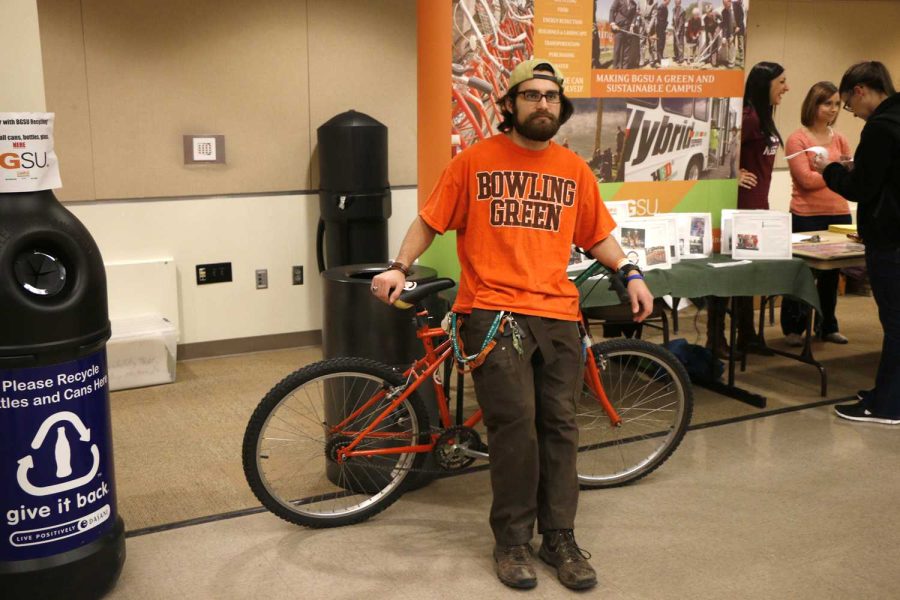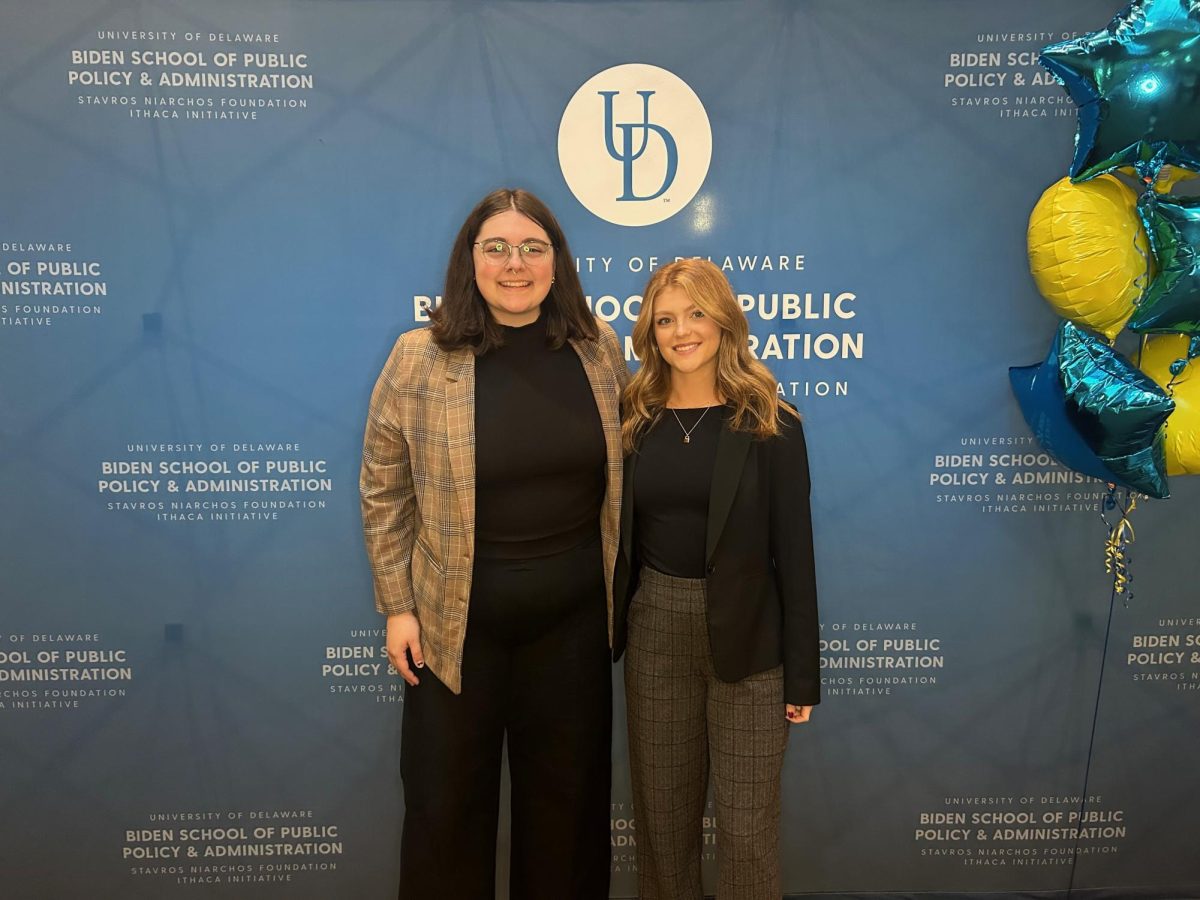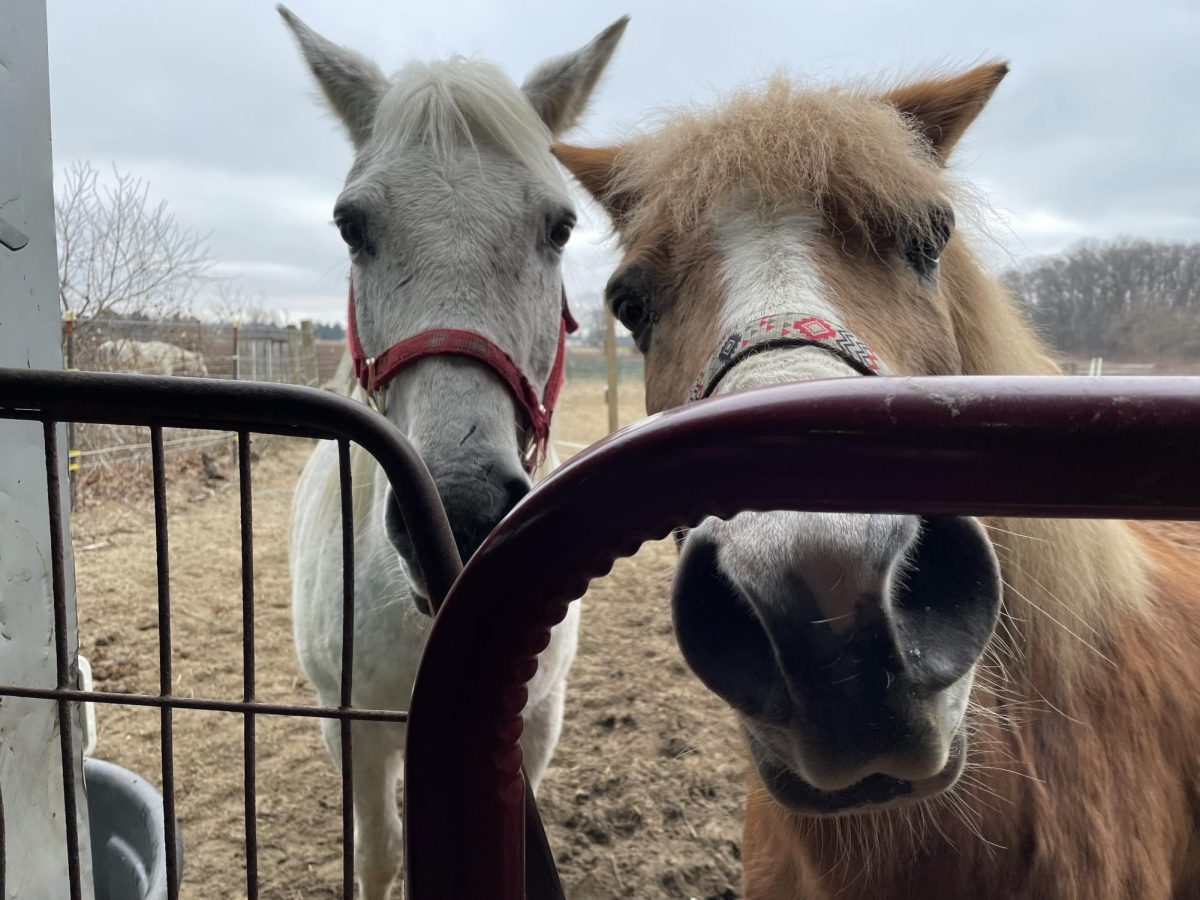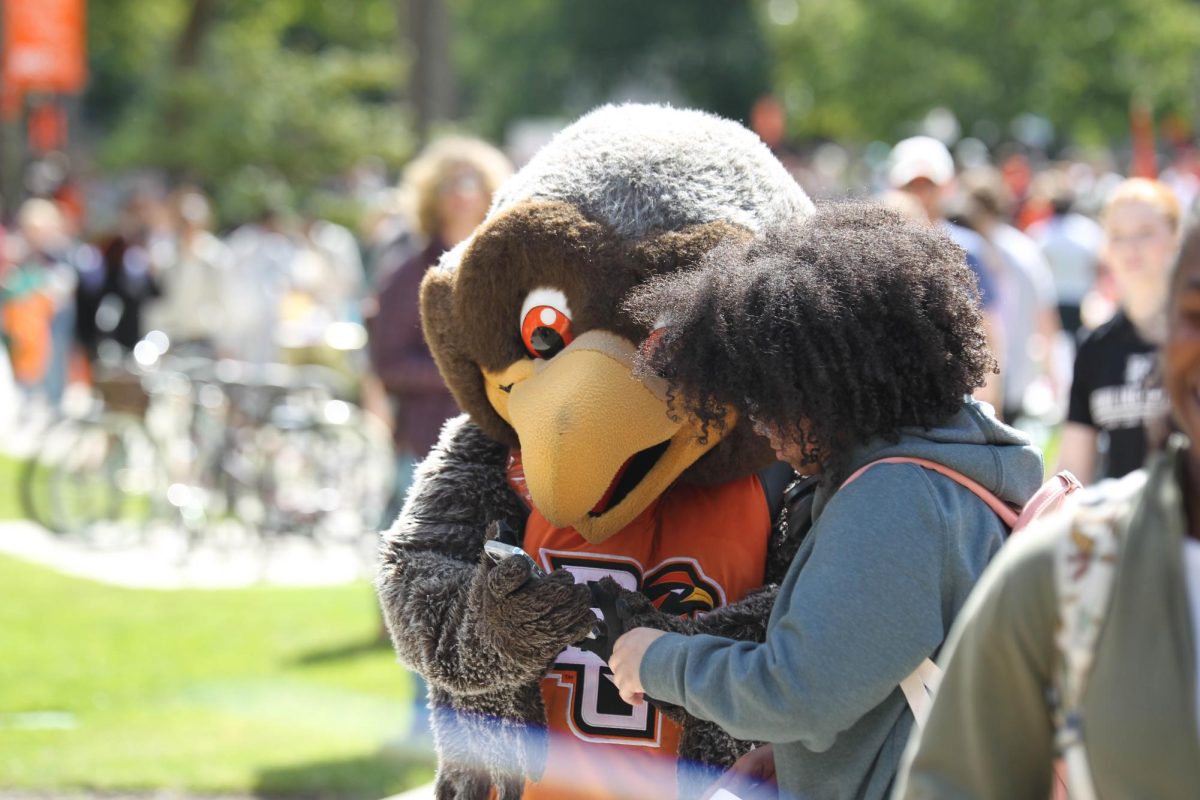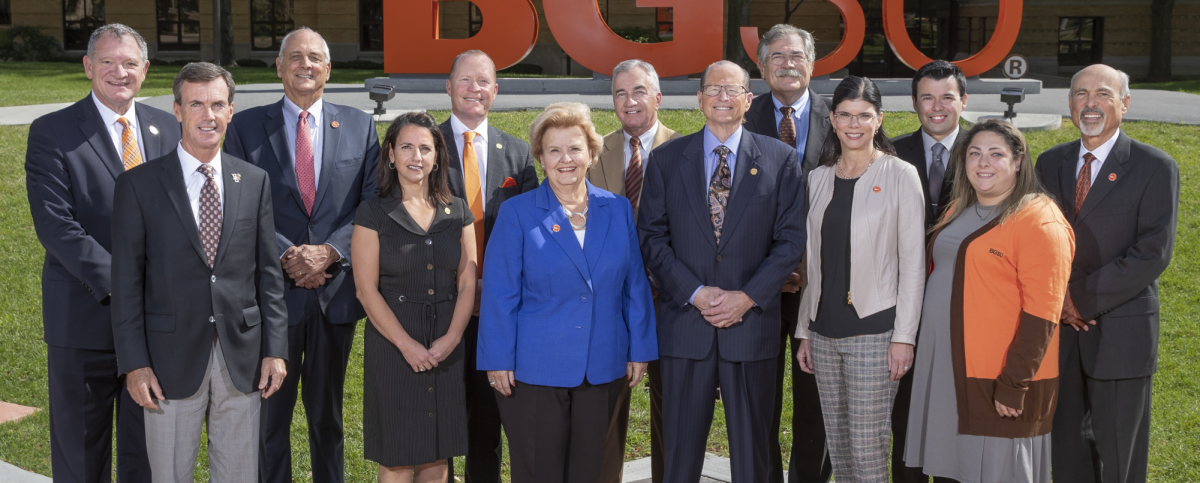Knowing how to protect your falcon bird brain can help you avoid a traumatic brain injury.
Traumatic brain injury [TBI] is damage that can be caused by falling, car crashes or any hard hit to the head. The brain reacts harshly when there is intense speeding up and slowing down, as in these examples.
Miriam Krause, assistant professor of the Communication Sciences and Disorders at the University ran the TBI awareness event Thursday called “Protect your Bird Brain,” which highlights different aspects of TBI and helmet awareness.
“The goal is to spread awareness of TBIs and how to prevent them,” Krause said. “Also just keeping your brain healthy, like eating healthy foods.”
The Office of Sustainability coupled with Krause to promote their “Orange Bike” program.
Junior Spencer Lee, an intern at the Office of Sustainability said this program offers up to 80 bikes that will be distributed around campus for use. Students sign up online, receive a bike key and can use any of these orange bikes on campus.
“This is really based on our trust of our members,” Lee said.
Having these bikes available increases the number of bike users on campus. Krause wants all of these people to be safe and wear helmets as well.
Faith Yingling, director of Wellness at the University was supervising the giveaway of 200 helmets. She said the fit of helmets is very important because if it is too tight or too lose, damage can still be dealt. There are two ways to properly fit a helmet.
The first is that only one or two fingers should fit into the chin strap and the second is having the correct head measurements. Yingling said anyone can get a TBI, so everyone needs to wear helmets and be aware of their surroundings.
“I always see families riding bikes and only the kids are wearing helmets, when the adults should be too,” Yingling said.
The event had hands-on activities that gave users the feel of living life with a TBI. There was a wheelchair course and blurred vision googles to try out.
The Ohio Brain Injury Program from Ohio State University attended the event and described the effects of TBIs and how to handle having one. Concussions are a mild form of TBI and happen to many athletes. Taking the time to let your brain regenerate after a concussion is a key step to recovery.
Cynthia Jo Parsons spoke at the event about her son, Shane who was in the Army infantry in Iraq. He was injured in the field and now has a TBI and PTSD.
They are a part of the Wounded Warriors Project, which helps to assist returned veterans transition back into their home life.
Parsons is a member of the Brain Injury Association of Ohio and travels to different events talking about how TBI’s effect lives.
A new organization on campus called the Peer Advisor for Veteran Education [PAVE] helps veterans and untraditional students with health care for college. Senior Josh Noblet, is a peer advisor for PAVE.
“We are expecting a lot more veterans to come to campus this year too,” Noblet said. “This helps more than just veterans, it helps the whole campus because we help untraditional students as well.”
PAVE is coupled with the Veterans Integration to Academic Leadership Initiative [VITAL] that gives students veterans more health care benefits and options while pursuing a college career.


